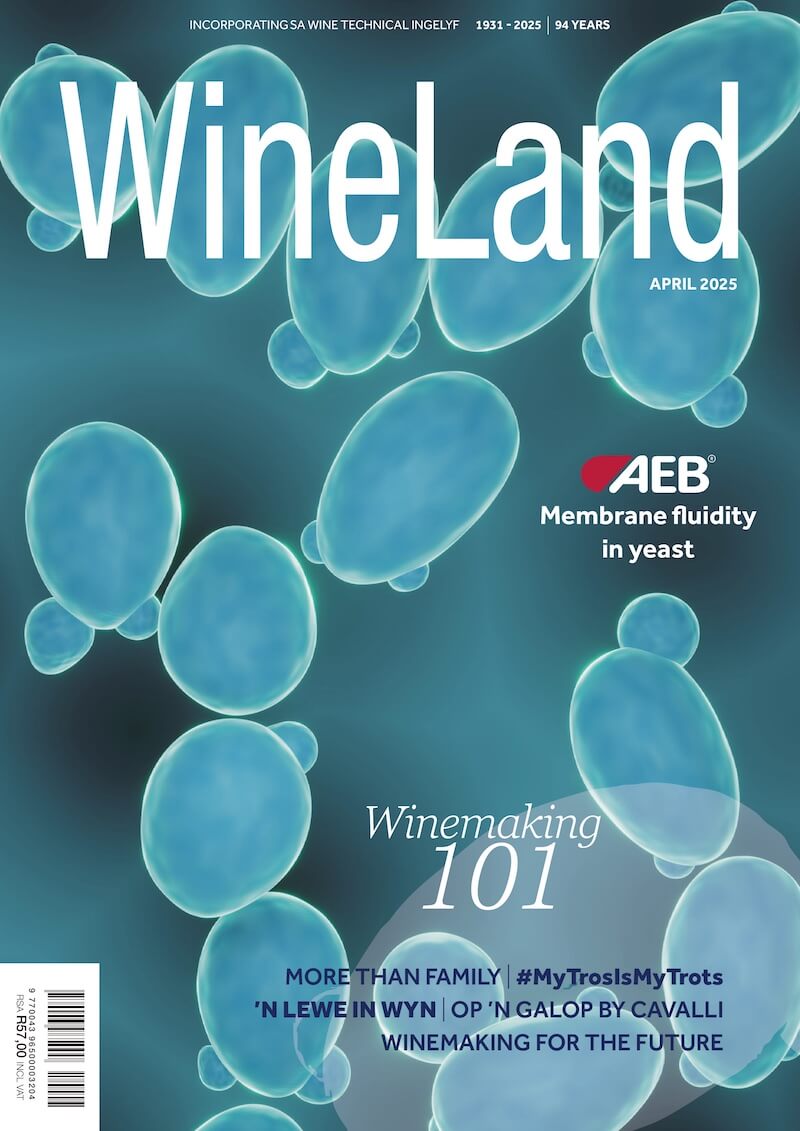Introduction
Grapevines are hosts to various plant-parasitic nematodes that cause reduced vigour and yield. These nematodes feed on grapevine roots and cause malformations or necrosis. This leads to the destruction of physiologically active roots and an overall reduction in water and nutrient uptake. Controlling nematodes in vineyards can be expensive, and if left untreated, they can shorten the productive lifespan of a vineyard.1 Worldwide, the prevalent genera identified in local vineyards are root-knot nematodes (Meloidogyne spp.), ring nematodes (Mesocriconema xenoplax), lesion nematodes (Pratylenchus spp.) and dagger nematodes (Xiphinema spp.).2 With the global demand for safer and eco-friendly ways to deal with pests, it is important to find grapevine rootstocks that are resistant to these harmful nematodes. Resistant rootstocks play a crucial role in the grapevine industry by providing a robust defence against soil-borne pests and diseases, such as nematodes. Unfortunately, many rootstocks commonly used in South Africa are not entirely resistant to nematodes. This project looked at 20 different rootstocks (both imported and local) to see how resistant they are to five common nematodes found in South African vineyards, including M. xenoplax, M. javanica, M. incognita, P. vulnus and X. index.
Methods
To test for nematode resistance, selected rootstocks were grown in pots under controlled conditions in a glasshouse. Nematodes were mass-reared and added to the soil with the rootstocks. After six months, the nematode multiplication was evaluated by extracting nematodes from the soil and roots of each plant and determining the number of nematodes per gram of soil and roots.3 Galling on the root systems of trial plants was also visually observed and scored. To understand how well the nematodes reproduced on each rootstock, a reproduction factor for all nematodes and a specific index for root-knot nematodes called the egg-laying-female index (EFI) was calculated.4 Resistance levels were further determined by comparing nematode counts from each rootstock to those from rootstocks known to be susceptible.5 DNA was extracted from young leaves to test dagger nematode resistance at a genetic level, and PCR was performed using SSR markers specific for X. index resistance.
Results
After two rounds of screening trials performed in different seasons, rootstocks Richter 99, Harmony, Ramper, Ramsey, Freedom and Dog Ridge showed resistance to both root-knot nematode species (Table 1). Rootstocks 101-14 Mgt and 143-B had moderate resistance to M. incognita, while Schwarzmann showed moderate resistance to M. javanica. Although certain rootstocks did not support significant reproduction of P. vulnus, a future study explicitly aimed at root lesion nematodes in South African vineyards will confirm the resistance of Couderc 3306, Couderc 3309, Dog Ridge, and Ramper to P. vulnus and other lesion nematode species. Although the XiRi locus, a gene for X. index resistance, was absent during molecular screening, Dog Ridge and Freedom showed moderate resistance to X. index, pending confirmation through further studies. Other rootstocks, like Fercal, seem to allow low levels of reproduction but exhibit higher numbers of root tip galls, making them to be considered as hypersensitive to X. index. None of the rootstocks were resistant to ring nematodes (C. xenoplax).

Conclusion
These trials have identified rootstocks with potential resistance to key nematode pests (M. incognita, M. javanica, X. index and P. vulnus). While some results are inconclusive and require further testing, several resistant rootstocks are already available in South Africa. These rootstocks enhance the resilience of grapevines, enabling them to thrive in challenging environments and reducing the need for chemical treatments. They also improve water and nutrient uptake, promoting healthy vine growth and consistent grape quality. By adapting to various soil types and conditions, resistant rootstocks ensure sustainable viticulture practices, supporting the long-term productivity and profitability of vineyards worldwide. These findings provide valuable guidance for nurseries and those implementing the Plant Improvement Scheme, helping to select rootstocks suited for specific challenges and conditions. Continued research will ensure the long-term value of these resistant rootstocks for the industry.

Christopher Paulse inoculating potted rootstocks with nematodes.
References
- Storey, S.G., Malan, A.P. & Hugo, H.J., 2017. Nematode pests of grapevine. In: Fourie, H., Spaull, V.W., Jones, R.K., Daneel, M.S. & De Waele, D. (Eds.). Nematology in South Africa: A view from the 21st century. Springer International, Switzerland, pp. 325 – 343.
- Walker, G.E. & Stirling, G.R., 2008. Plant-parasitic nematodes in Australian viticulture: Key pests, current management practices and opportunities for future improvements. Australasian Plant Pathology 37: 268 – 278.
- Marais, M., Swart, A., Fourie, H., Berry, S.D., Knoetze, R. & Malan, A.P., 2017. Techniques and procedures. In: Fourie, H., Spaull, V.W., Jones, R.K., Daneel, M.S. & De Waele, D. (Eds.). Nematology in South Africa: A view from the 21st century. Springer International, Switzerland, pp. 73 – 117.
- Hussey, R.S. & Boerma, H.R., 1981. A greenhouse screening procedure for root-knot nematode resistance in soybeans. Crop Science 21: 794 – 796.
- Ferris, H., Zheng, L. & Walker, A. 2012. Resistance of grape rootstocks to plant-parasitic nematodes. Journal of Nematology 44(4): 377 – 386.
For more information, contact Rinus Knoetze at knoetzer@arc.agric.za.
Click here to get your copy of WineLand Magazine.













